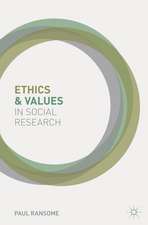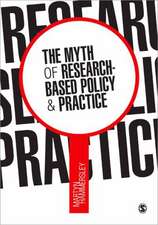Societies and Social Decision Functions: A Model with Focus on the Information Problem: Theory and Decision Library, cartea 30
Autor A. Camachoen Limba Engleză Paperback – 19 oct 2011
Din seria Theory and Decision Library
- 15%
 Preț: 599.61 lei
Preț: 599.61 lei - 15%
 Preț: 581.62 lei
Preț: 581.62 lei -
 Preț: 382.57 lei
Preț: 382.57 lei - 18%
 Preț: 1231.64 lei
Preț: 1231.64 lei - 18%
 Preț: 1223.89 lei
Preț: 1223.89 lei - 18%
 Preț: 943.43 lei
Preț: 943.43 lei - 15%
 Preț: 642.83 lei
Preț: 642.83 lei - 18%
 Preț: 950.33 lei
Preț: 950.33 lei - 18%
 Preț: 1234.94 lei
Preț: 1234.94 lei -
 Preț: 391.61 lei
Preț: 391.61 lei -
 Preț: 382.75 lei
Preț: 382.75 lei - 15%
 Preț: 643.16 lei
Preț: 643.16 lei - 15%
 Preț: 639.73 lei
Preț: 639.73 lei -
 Preț: 399.67 lei
Preț: 399.67 lei - 18%
 Preț: 1843.73 lei
Preț: 1843.73 lei - 15%
 Preț: 645.79 lei
Preț: 645.79 lei - 15%
 Preț: 646.43 lei
Preț: 646.43 lei - 18%
 Preț: 1228.96 lei
Preț: 1228.96 lei - 15%
 Preț: 642.03 lei
Preț: 642.03 lei - 15%
 Preț: 589.47 lei
Preț: 589.47 lei -
 Preț: 383.33 lei
Preț: 383.33 lei -
 Preț: 395.09 lei
Preț: 395.09 lei - 18%
 Preț: 949.55 lei
Preț: 949.55 lei -
 Preț: 389.11 lei
Preț: 389.11 lei - 15%
 Preț: 646.94 lei
Preț: 646.94 lei - 15%
 Preț: 698.94 lei
Preț: 698.94 lei - 18%
 Preț: 1218.06 lei
Preț: 1218.06 lei - 18%
 Preț: 962.03 lei
Preț: 962.03 lei -
 Preț: 385.08 lei
Preț: 385.08 lei -
 Preț: 396.24 lei
Preț: 396.24 lei - 18%
 Preț: 2482.38 lei
Preț: 2482.38 lei - 18%
 Preț: 953.82 lei
Preț: 953.82 lei - 18%
 Preț: 1233.06 lei
Preț: 1233.06 lei -
 Preț: 399.29 lei
Preț: 399.29 lei
Preț: 354.21 lei
Nou
Puncte Express: 531
Preț estimativ în valută:
67.80€ • 73.67$ • 56.99£
67.80€ • 73.67$ • 56.99£
Carte tipărită la comandă
Livrare economică 17-23 aprilie
Preluare comenzi: 021 569.72.76
Specificații
ISBN-13: 9789400978157
ISBN-10: 9400978154
Pagini: 164
Ilustrații: 164 p.
Dimensiuni: 152 x 223 x 9 mm
Ediția:Softcover reprint of the original 1st ed. 1982
Editura: SPRINGER NETHERLANDS
Colecția Springer
Seria Theory and Decision Library
Locul publicării:Dordrecht, Netherlands
ISBN-10: 9400978154
Pagini: 164
Ilustrații: 164 p.
Dimensiuni: 152 x 223 x 9 mm
Ediția:Softcover reprint of the original 1st ed. 1982
Editura: SPRINGER NETHERLANDS
Colecția Springer
Seria Theory and Decision Library
Locul publicării:Dordrecht, Netherlands
Public țintă
ResearchCuprins
1/Comparison of Approaches to Social Choice.- 2/Intensity of Preferences and Cardinal Utility.- 3/Unsatisfactoriness of Ordinal Methods in Dealing with Problems of Social Choice.- 4/A System of Axioms for Cardinal Utility.- 5/A More General System of Axioms for Cardinal Utility.- 6/An Abstract Model of Society.- 7/Social Decision Functions.- 8/A Theorem Proving the Unsatisfactoriness of the Ordinal Approach to Social Choice.- 9/Strengthening the Theorem Proved in Chapter 8: Informal Discussion.- 10/Unsatisfactoriness of the Ordinal Approach to Social Choice: Further Results.- 11/ Justifying the Use of Ordinal Methods.- 12/Conclusion.- Appendix 1 /The Utility Differences Approach to Cardinal Utility.- Appendix 2/The Expected Utility Approach to Cardinal Utility.- Index of Names.- Index of Subjects.















